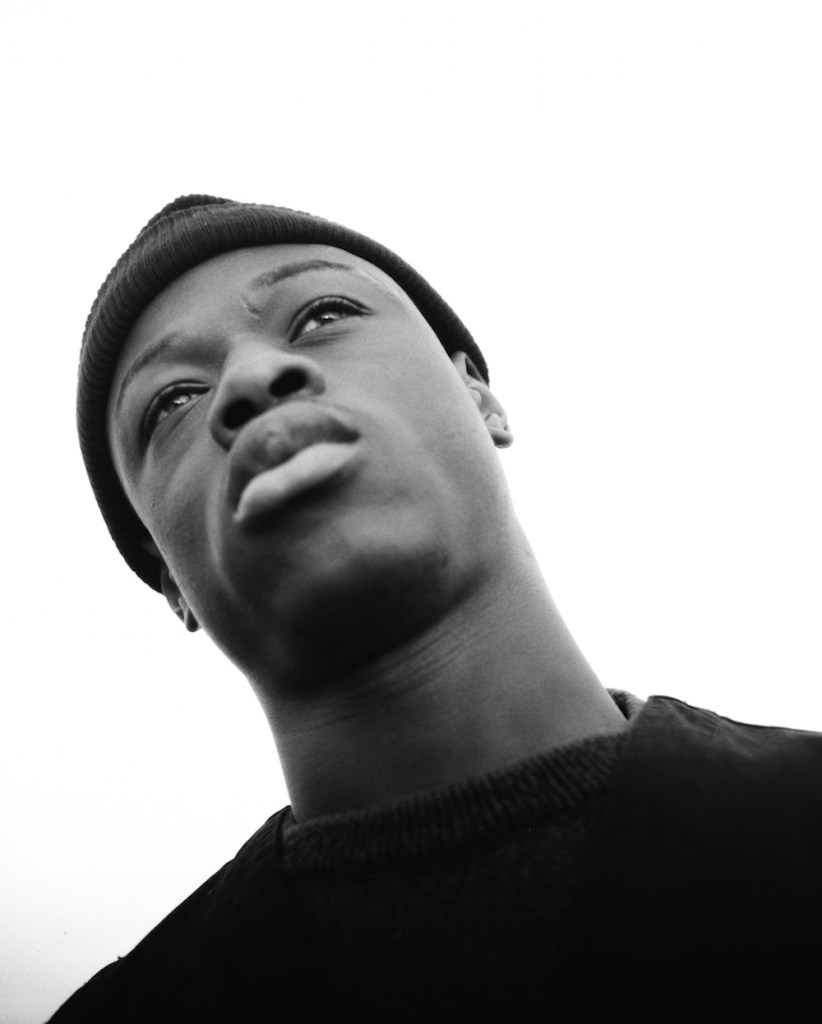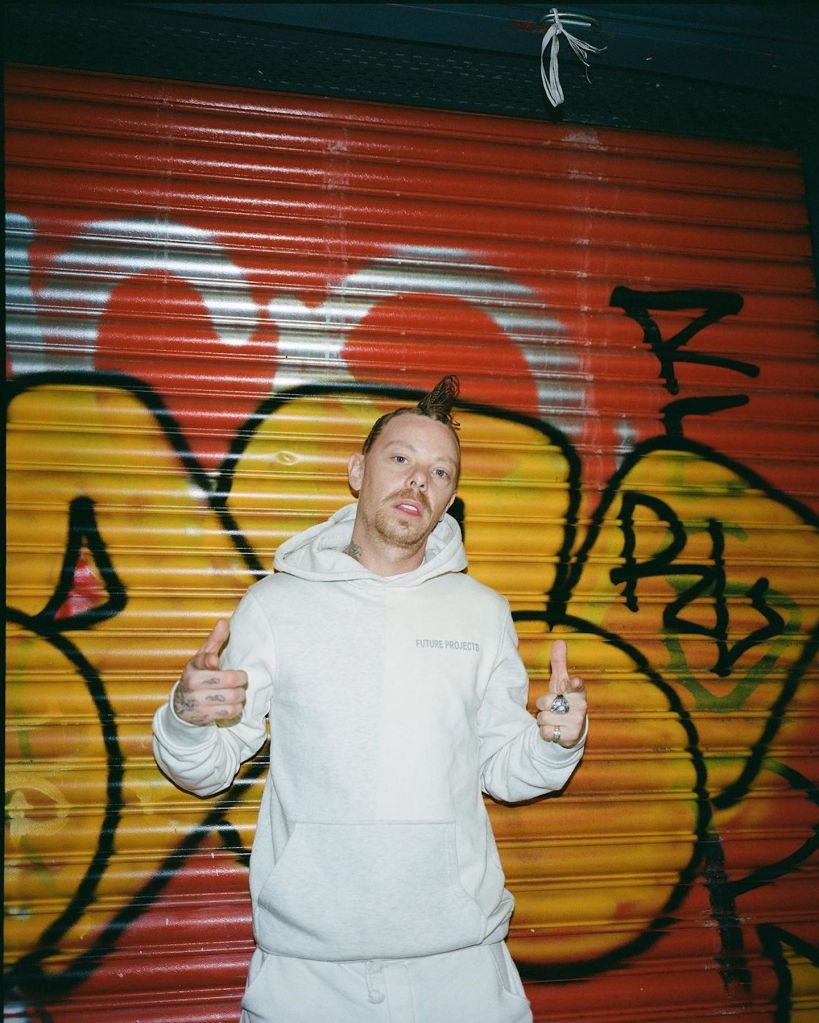“So, where are you from?”
If there’s one question I answer differently depending on who’s asking, it’s that. At work – despite it being the most diverse office I’ve ever set foot in – it’s easy: “London.” Around my black peers? I’ve mastered the art of deciphering whether they mean geographically (hardly ever) or culturally. And when I say my mum’s Jamaican and dad’s Nigerian, that they met in Hackney, I always crack the same joke that, no, of course they didn’t “work out.”
For as long as I can remember, “where are you from?” has been a loaded question, and in my case it feels particularly so within the black British community. In my teenage years, the “wrong answer” could lead to violence if you were found a few miles beyond your own postcode. And as second- or third-generation immigrants, it’s one of the questions you can’t help but ask other people who look like you, allowing you to make the silent mental calculations to decipher what you may have in common – and sometimes make clumsy assumptions based on the responses.
Videos by VICE
As Mr Eazi recently discovered, on the Ghanaian vs. Nigerian end of spectrum, it can be just a jovial question of whose jollof rice is best. But it can be a different story on the Nigerian vs. Jamaican end, it wasn’t too long ago that the rivalry paralleled a Lord Of The Mics soundclash, with Jamaicans swiping at African “booboo-scratching” poverty while Nigerians claimed superiority over uncouth “Jamos”. All the while, as a product of both cultures, I’d look on in bemusement, thinking how terribly similar (side-note: loud and ostentatiously proud) they can be.
But it didn’t matter what I knew to be true. Jamaica’s chart dominance during my 90s childhood meant I was more likely to sing along to Shabba Ranks’ “Ting-A-Ling” than any Fela Kuti track. Therefore it was far cooler to be a black British Jamaican – end of. But now things are changing. From Donae’O to Sneakbo, the young, gifted and black diaspora are rewriting the rules of black music, blending afrobeat drums, bashment basslines and trap bars. British-African musicians who, in their younger years may have been teased for adopting Caribbean culture, are singing classic dancehall lines with their chest. We no longer need to stick to our “own” sound, limited by the idea of one rigid cultural identity. And thank fuck for that.
Music is and has always been a huge part of the black experience – so in hindsight, I can understand why my Jamaican friends displayed a pride for their home culture louder than anybody else. Even if they hadn’t yet visited their parents’ or grandparents’ home countries, you’d be none the wiser. From bogle to butterfly, screechy to gully creep – the latest dance moves proved to be Jamaica’s greatest export. Soundtracked by my mum’s music collection, my impressionable ears were accustomed to Bob Marley, Maxi Priest and Shabba Ranks every Sunday, while I’d only see my dad get down when Prince Nico Mbarga’s “Sweet Mother” played at family events. The comfort of home aside, popular culture dictated what banged at school. The truth is, Jamaican culture prevailed, and all the schoolkids wanted to be involved.
Fast forward to college in 2005 and I crashed into my first real experience of a predominantly young British-African setting. As “Premier Gaou” by Ivorian group Magic System blared through a sea of Nokia phones, my fellow – mostly Nigerian – peers proudly spoke Yoruba and pidgin English, using expressions I’d only ever heard at Big Fat Nigerian Parties. As grime took off, it was nothing out of the ordinary to have college MCs skip lessons for a common-room clash. You’d hear slurs in London slang mixed with Jamaican patois, Maxwell D style. But I’ll never forget the first time I heard MC Rebler mix greezy road talk with pidgin English and impressive sound effects: “I’d bang on your head like Congo drums / bo-do-boom-ke-ke-ke….bo-do-boom-ke-ke-ke.” The reaction he evoked among my African friends was something bigger than just that moment.
More than ten years later, we’re beginning to hear an even fresher sound – one that feels like it truly represents what it means to be black and British today. “Afro bashment” as it’s been dubbed by Spotify’s very own playlist, feels like my cultural mix. It’s the next logical step from party flyers booming out a competition between “afrobeats versus bashment”. But it’s bigger than that: whether African or Caribbean, it’s no longer about which culture is deemed most popular. Instead, it blends both language – pidgin English with Patois, Creole with Lingala, and recognisable, local slang – with sonic inflections. Not satisfied with mimicking what’s already successful in the Caribbean or Africa, it’s a genre with credibility of its own – just like grime.
But should we all – and people like me, of dual African and Caribbean heritage in particular – get excited? Is Afro bashment just a fad, or a genre here to stay? Austin Darbo, then-BBC 1Xtra presenter and now the Spotify Senior Editor behind its Afro Bashment playlist, may have unknowingly answered this golden question back in 2014: “Black music genres are constantly evolving as are the tastes of young audiences,” he wrote. “Different genres will always peak at different points. Sometimes it’s R&B, other times it’s hip-hop.”
J Hus, Kojo Funds, Afro B and Abra Cadabra – all UK talent blending African, Caribbean and UK slang to champion this new sound – are proving that right now, it’s Afro bashment’s time to shine. And thankfully, we don’t all seem as fussed about the cultural rivalry as before. “Where the rudeboy sound was once predominantly defined by Jamaican influences – moving from two-tone in the early 80s, to the sounds of jungle in the 90s, and grime’s conception in the 2000s – it’s now taken on a contemporary form that has come out of a culmination of different heritages;” ran a Noisey piece on J Hus from last year, “a crossroads where English, Jamaican, and West African dialects make up a multilingual landscape of vocal styles.”
As a community, we often have to explain our cultural identity to outsiders; many of whom ask questions out of innocent curiosity. But too often, those asking don’t realise the subtle and not-so-subtle differences between cultures within the African diaspora, and see us all as one. When you walk along British streets with plenty of melanin in your skin, people may look to slot you into a box they’ve already learned to use: dreadlocks tell them Jamaica; a colourful headdress makes them assume Nigeria; jeans, a puffa jacket and a beanie might make them squint further and ask where you’re “really” from.
Afro bashment highlights both our differences and similarities, in a way only music can. DJs no longer need to be tied to an Afrobeats or dancehall set. Artists can choose whether to rap in their mother tongue – or not. Either way, “food haffi nyam”, as Ghanaian Abra Cadabra rightfully says. But my favourite part? I won’t have to choose which side I feel like embracing most on a night out; I get to be the girl who does both.
But how about those who were born, rooted and grounded in solely Jamaican culture? If there’s one thing I’ve learned, Jamaicans are as proud of their music as they are their birthright. I asked Marvin Sparks, a Jamaican music specialist, for his thoughts on the fusion.
“As a dancehall lover first and foremost, Afro bashment is the most exciting fusion of music at the moment. There’s nothing better than sing alongs on club-ready riddims. Mo Stacks, Kojo Funds and Maleek Berry have that rare ability to make songs for gun-finger raising – and securing wines too,” he says. “It also feels like the truest reflection of the UK right now, mixing sounds from our African and Caribbean heritage with rap and R&B. I don’t think it could happen as organically anywhere else in the world.” Perhaps he’s right. UK cities such as Manchester, Birmingham and London are renowned for their melting pot of cultures, and were bound to be demonstrate that through their citizens’ approaches to music. Whether of African or Caribbean origin, the raw energy of black music has meant onlookers either embrace it – as the multi-racial Notting Hill Carnival crowd do, to varying degrees – or choose to demonise it, asDavid Cameron once did.
For as long as I can remember, the mainstream media has only depicted my identity in parts: the Gina Yashere Nigerian-British sketches, The Desmonds‘ Caribbean family, the reality of inner-London life on Channel 4’s Top Boy. Now, Afro bashment is the first to represent my cultural identity in full. And with a society as colourful as ours, it’s about time.
You can find Alison on Twitter.
(Lead image of J Hus by Olivia Rose via PR)




